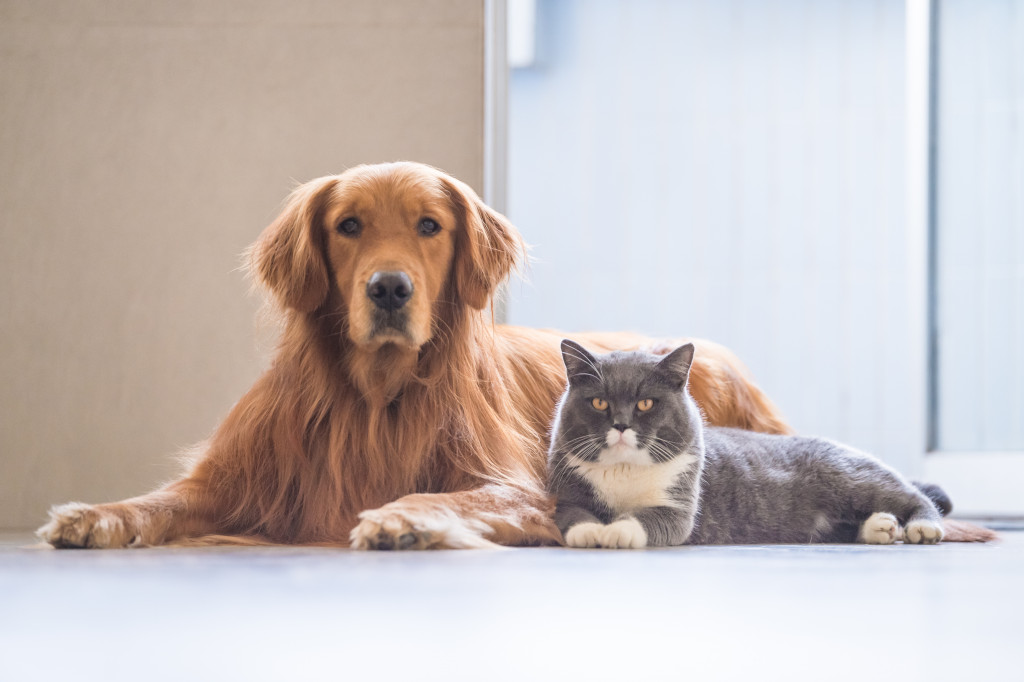We’re not strangers to stories of couples giving up their pets when the baby arrived. As much as those stories upset us, we can’t judge those people because a pet, especially a dog, is also like a kid in many ways. They require attention and healthcare. They also tend to deal with separation anxiety, so leaving them alone frequently isn’t a smart move, even if you have childcare as an excuse. Hence, pet owners make the difficult decision of re-homing their furbabies since it’ll give them the attention and care they deserve.
But what if you’re not willing to give up your pet? That’s not new either; many families with young children live safely and happily with pets around. Many articles show that there are benefits to pet ownership while raising kids. Walking dogs can help with physical activity, to name one. But the question lies on safety. While kids can be safe around pets, sometimes, kids can behave in a way that threatens an animal. If the animal is provoked, it can attack the kid. This is another reason many people re-home their pets when they’ve just had a baby. Pets have animal instincts, so their behaviours can be unpredictable at times.
What Pets Are Safe Around Children?
Families typically choose dogs or cats, or both, as the furry members of the household. Both animals can be trained and are affectionate toward humans, children included. But if your child is under four years old, you must always supervise them while they interact with a pet. Children in that age group aren’t mature enough to control their angry and aggressive impulses yet. If they throw a tantrum in front of a dog or a cat, the animal may either flee or fight back.
Children older than ten years old can already care for a pet on their own, but if the pet isn’t trained, your supervision remains crucial. Besides, your kid most likely relies on you to the overall care for the pet. If they’re not in charge of feeding, bathing, or cleaning up after the pet, you’d need to be involved in your kid and pet’s interactions.
You stand as your kid’s role model in pet care. So mind how you treat your furbaby. If you’re aggressive toward your pet, your children will likely act the same way. And if they provoke the pet, you’d never know what could happen.
Balancing Pet Care and Childcare

In Singapore, the demand for furry companions is at an all-time high. Considering that, it’s safe to assume that Singaporean families generally see no problem in caring for a pet while raising a child. But how do you balance both demanding duties? Below are some ingenious tips:
-
Study the Behaviour of Your Pet
In Singapore and other parts of Asia, there’s a superstition that black cats are unlucky, particularly if they cross your path. But this is just a myth. They don’t get jealous of babies and suck away their breaths, either. In truth, cats typically steer clear of an infant and are upset about the changes in the house, not with the baby themselves.
Dogs, on the other hand, tend to see little kids as a threat. Since dogs see their humans as their “alpha”, a young kid standing close to a dog’s face may trigger an aggressive or defensive impulse in them. If the kid makes a move to touch the dog’s face, the animal might snarl and eventually snap at the kid.
Take note of your cat’s or dog’s behaviour when they see your baby for the first time. A cat will most likely ignore the baby, while your dog may show signs of anxiety. So watch your child and take things slow when introducing them to each other.
-
Teach Your Child How to Properly Interact with Your Pet
If your child learns how to treat your pet right, you’d no longer constantly worry that one is in danger because of the other. So sit down with a child, and show them how you pet the cat or the dog. If you can, make your child involved in your pet care routine. Demonstrate how you prepare your dog or cat’s healthy food. Teach them what foods are safe and unsafe for pets. This way, your child will learn that pets aren’t toys but members of the family with well-being as important as anyone.
-
Treat Your Pet Like a Human Being
If you wouldn’t bug a person while eating or sleeping, observe the same respect for your pet. Then teach your child to do the same. This will also make your kids understand that pets deserve respect too, and in no time, they’d bond without your worries and fears distracting you.

